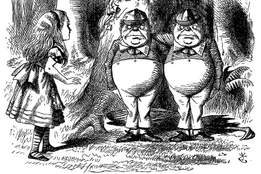epistrophe
noun
epis·tro·phe
i-ˈpi-strə-(ˌ)fē 

: repetition of a word or expression at the end of successive phrases, clauses, sentences, or verses especially for rhetorical or poetic effect (such as Lincoln's "of the people, by the people, for the people") compare anaphora
Love words? Need even more definitions?
Merriam-Webster unabridged








Share